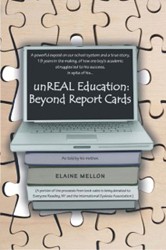“It came together as easily as a puzzle, as cleanly as a proof.” So states Katherine, the narrator of The Tenth Muse, Catherine Chung’s ambitious novel about one woman’s quest for professional and personal fulfillment. The line, towards the end of book, reflects Katherine’s mathematical sensibility and accurately sums up the plot. But the neatness of the claim belies the harrowing events that precede it, the chaotic journey that concludes with equation-like order.
The novel, set in both the United States and Europe, spans several decades, from the 1940s through current times. Katherine’s aptitude for math expresses itself early on. As a young girl growing up in Michigan, she excels in the subject, much to the irritation of her teachers, fellow students and others in her orbit. That their response is caused by jealousy is clear. Jealousy, insecurity and suspicion, feelings that only increase as Katherine’s skill and ambition grow. This is especially true with respect to the male figures in her life, each of whom works to undermine her. Indeed, sexism is one of the novel’s central themes, and Katherine, as a woman who attempts to carve her own path, who, like the “tenth muse,” refuses to “sing in the voice of men,” is a perfect target.
But achieving professional respect is only one part of the puzzle. The other is discovering her biological roots. Katherine is half Chinese, but much about her direct lineage remains a mystery. Her mother leaves when she’s young and her father initially gives no reasons. But there is more — much more. Through a series of sometimes too coincidental events, she ultimately learns the truth, a key part of which, though surfacing late in the story, is Jewish in nature.
The issues Chung raises are relevant and the plotting is complex (although a few of the episodes strain credulity). But despite the nerve-wracking, sometimes life-endangering action, the characters elicit little feeling. Though Katherine is worthy of our attention, and her struggle for identity is relatable, it is hard to connect with her emotionally. Despite all of her pain, she comes off more as a problem to be solved than a woman with an authentic inner life. The undertaking is admirable, but what we’re left with is more proof than heart.
The story has much real science mixed with fictionalized theories, but also includes myths and legends. It makes a case for different ways of knowing, and different ways to complete the puzzle.
Ona Russell is the author of three award-winning historical mysteries. Her latest stand-alone novel, Son of Nothingness, was published by Sunstone Press in 2020.





